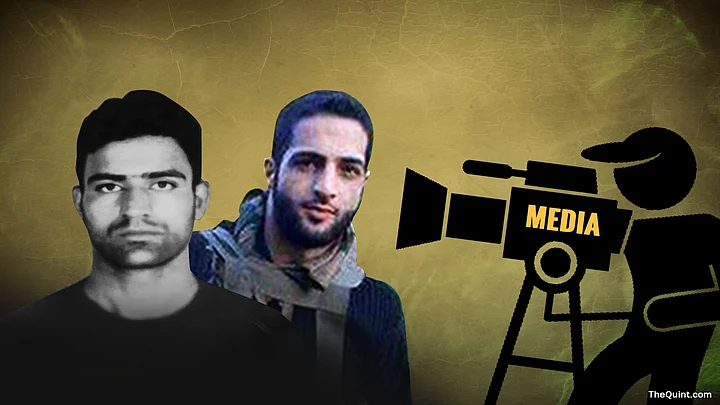Burhan Wani was a young cricket fan and was locally known for his skills in the game. A man called Afroz Ahmed Lone was also a talented and well-known cricketer in south Kashmir’s Anantnag district. He made a mark at not just the state level but also the national level.
The death of the former became a headline across the country. The nation wanted to know who he was, who he had been, why he was killed and why Kashmir was aflame because of his death.
The death of the latter hardly warranted a passing mention. No flames were lit, no long profiles or obituaries were published, no television debates were set up to talk about the circumstances that led to Lone’s career decisions.
Kashmiri, But Not Kashmiri Enough?
Both Wani and Lone were Kashmiri. Wani was killed in an encounter by the Indian security forces. Lone was killed by a mob protesting the killing of Wani. Burhan Wani was a Hizbul Mujahideen commander. Afroz Ahmed Lone was a Jammu and Kashmir police constable.
You see, Burhan Wani’s background and Hizbul Mujahideen membership highlighted the failures of the state at a time when the issue of nationalism no longer remains the domain of academics debating the idea of an imagined community. Nationalism is now ‘Bharat mata ki jai’, ‘gai hamari mata hai’, ‘Muslims are Indian too’, ‘death to Umar Khalid’ and, of course, Kashmir. It’s a series of rhetorical slogans for and against azadi. And everyone has an opinion that needs to be heard.
So, Burhan Wani was perfect. Everyone loved him – whether he was the martyr or the terrorist depended on their vantage point. The nation wanted a symbol and Burhan Wani was all they could ask for.
No Processions of Solidarity For Afroz
But, Afroz Ahmed Lone? He was driving an armoured police vehicle which was pushed into the Jhelum river by a mob in Sangam, Anantnag. He was posted at the Sangam police station only three months earlier. He hailed from a poor family and joined the police force in 2011. He shared a story of poverty with thousands of other constables across the country.
So what if he was Kashmiri? What made him special? His death wasn’t astonishingly different. He didn’t have an origin story of discrimination and violence. What made him different?
What, indeed?
The media doesn’t seem to have an answer to that question. If they had, perhaps Lone would have made the front page too. Perhaps, they would have focussed on the fact that he was another side of the very complicated story of Kashmir. A story that nobody has yet figured out how to tell because there’s never an objective angle to take.
Kashmir draws anger, it ignites passions. And Burhan Wani’s story fit perfectly into those angry, passionate rants.
How bad have things got that the death of another Kashmiri at the hands of his fellow countrymen doesn’t matter because he was part of the establishment? That his death did not set Kashmir on fire because he wasn’t one of ‘them’?
(At The Quint, we question everything. Play an active role in shaping our journalism by becoming a member today.)
